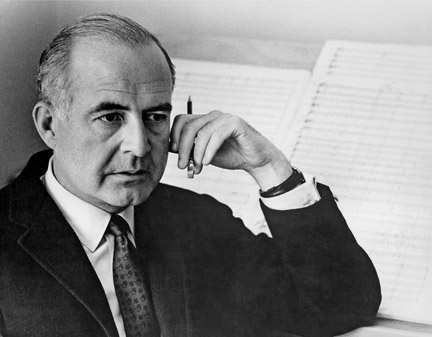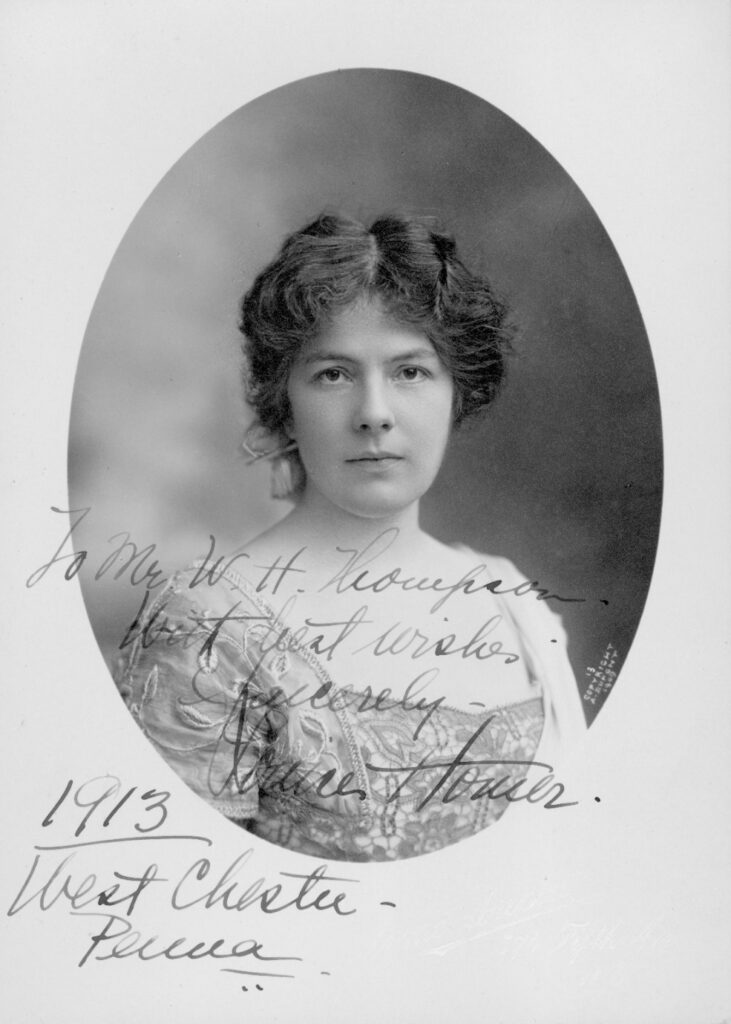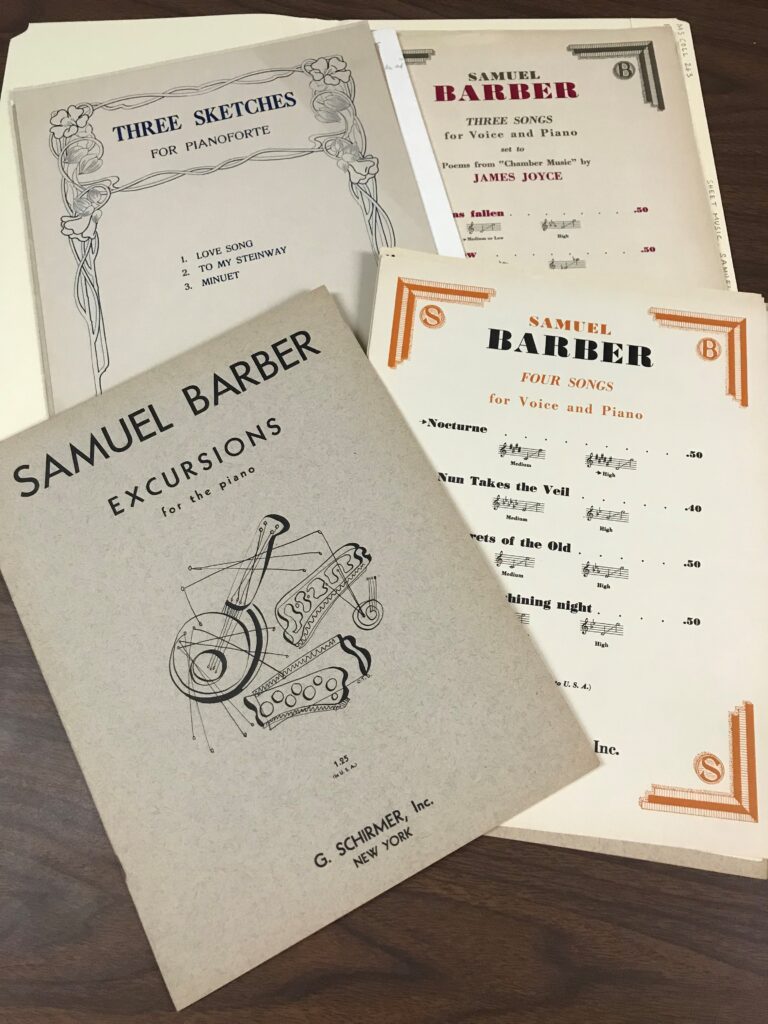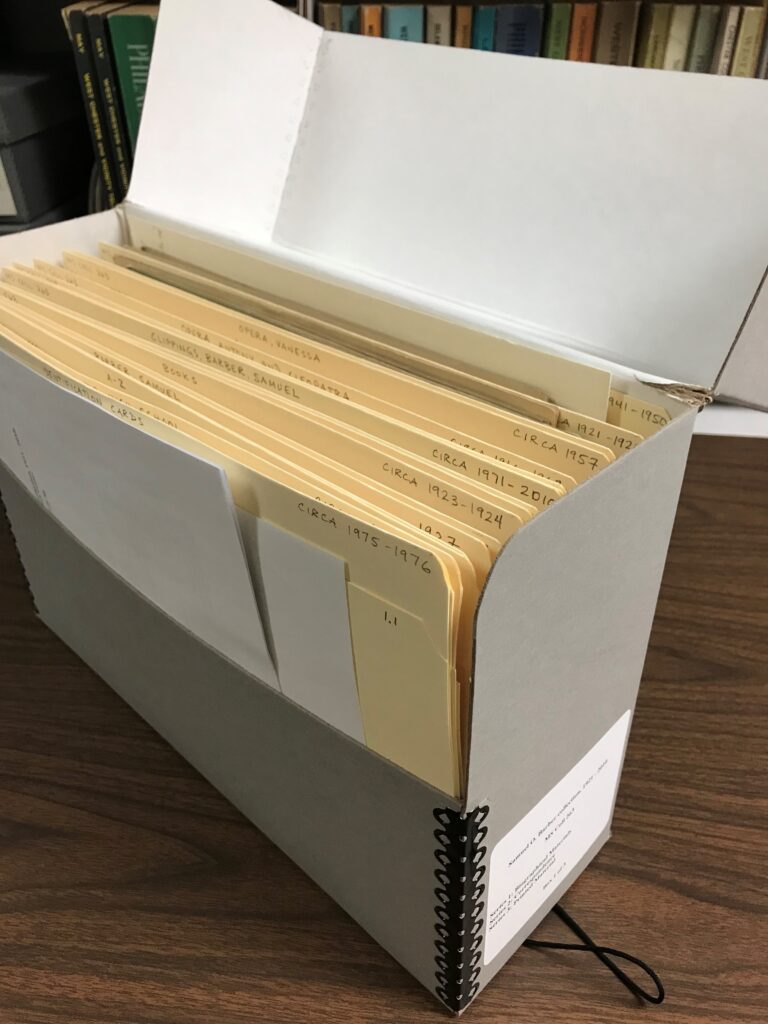By E. Richard McKinstry, Library Volunteer
The library at the Chester County History Center welcomes all researchers. Those who use library resources include, among others, genealogists studying family histories, students working on school papers, readers who are simply interested in the history of their county, and advanced academics consulting resources for scholarly books and articles. Recently, the Center and its staff were cited for their assistance in a biography of Samuel Barber, a native of West Chester and one of the country’s most noted 20th century composers. The book, Samuel Barber, His Life and Legacy, published earlier this year by the University of Illinois Press, was written by Dr. Howard Pollack, a professor of music at the University of Houston. Pollack’s other publications include studies of Joseph Haydn, Aaron Copland, and George Gershwin.

Samuel Osmond Barber was born in West Chester, Pa. on March 9, 1910. His father, Samuel Le Roy Barber (1879-1947), was a medical doctor and president of the West Chester school board for 25 years. His mother, Marguerite McLeod Beatty Barber (1881-1967), was a pianist. The eldest of two children, Barber dedicated many of his early works to his sister, Sara Fulton Barber. Barber’s maternal aunt, Louise Homer (1871-1947), was a leading contralto at New York’s Metropolitan Opera, and his uncle, Sidney Homer (1864-1953), was a composer of art songs, vocal music compositions typically written for one voice with piano accompaniment.
At a young age Barber had a belief that his career would be in music. At the age of 9, he began studying with William Hatton Green, a renowned piano teacher in West Chester who had studied under Theodor Leschetizky, one of the founders of the St. Petersburg Conservatory of Music in Russia. When Barber was 10, he wrote his first operetta, The Rose Tree, and at 12, he became an organist for West Chester’s Westminster Presbyterian Church. At 14, while still attending school in West Chester, he entered the youth artist program at the Curtis Institute of Music in Philadelphia, where he developed his talents in composition, voice, and piano.

At West Chester High School, Barber was a noted scholar and participated in numerous extracurricular activities–including the Latin, French, music, and drama clubs–and was the editor of the school’s literary yearbook. In 1928, Barber graduated and immediately afterward entered the adult professional program at the Curtis Institute from which he graduated in 1934. During this period of study, Barber met fellow composition student, Gian Carlo Menotti, who would later become a personal and professional life partner. At the age of 18, Barber won the Joseph H. Bearns Prize from Columbia University for a violin sonata, and when he was 21, he won his second Bearns Prize for The School for Scandal, an orchestral work.
Early in his career Barber was a professional baritone, at one point with a weekly singing contract with NBC radio; however, his forte remained with musical composition. In 1938, Arturo Toscanini directed Barber’s Adagio for Strings and Essay for Orchestra for the NBC Symphony Orchestra. In 1942, Barber joined the Army Air Corps, remaining in service until 1945. In addition, he wrote several compositions for the Boston Symphony Orchestra, including his Second Symphony, which he had originally entitled Symphony Dedicated to the Air Force.

Following World War II, Barber composed a ballet suite, Medea, for Martha Graham. In 1946, the U.S. State Department chose Barber to be a member of a delegation to the first Prague Spring International Music Festival where his music was performed with other American composers, including Leonard Bernstein. Also in 1946, Barber received a Guggenheim fellowship and studied privately with noted conductor George Szell. In 1949, Barber’s composition, Piano Sonata, which had been commissioned by Irving Berlin and Richard Rogers to mark the 25th anniversary of the League of Composers, achieved critical acclaim. During the 1950s, Barber conducted his own works with several symphony orchestras, including the Berlin Philharmonic, the Frankfurt Radio Symphony, and the Boston Symphony Orchestra. In 1958, Barber won his first Pulitzer Prize for his opera Vanessa, and in 1962, he won his second Pulitzer for his Piano Concerto, which had been commissioned for the opening of Lincoln Center. Also in 1962, Barber became the first American to go to the Congress of Soviet Composers, which convened in Moscow.
During the 1960s, Barber suffered issues with his health, and his opera Antony and Cleopatra (1966) did not win the critical praise he had been accustomed to. Eventually Barber divided his time between his home in Mount Kisco, New York and his chalet in Santa Christina, Italy where he spent long periods in isolation. Even so, he was active in writing music until he was nearly 70 years old.
Barber was hospitalized for the treatment of cancer off and on between 1978 and 1981. He died of the disease on January 23, 1981 in his Manhattan apartment. His funeral took place at the First Presbyterian Church, West Chester, and he was buried in the Barber family plot at Oaklands Cemetery, also in West Chester.

The Center’s Samuel Barber collection includes biographical materials and correspondence relating to Barber’s early years in West Chester. In addition, the collection has printed and manuscript materials featuring a selection of brochures, programs, printed sheet music, and drafts of original compositions kept by Barber during his youth.
